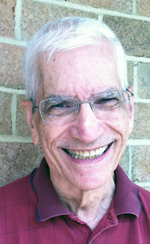By Joel H. Cohen

NEW YORK — A politically hip young financier organizes and executes a very successful dinner, to which he’s invited his mother, as well as. important government officials.
She agrees it was a very enjoyable affair, to which her son says, “Do you realize who was sitting next to you? The President!”
“Really?” she responds happily. “Of what shul?”
To some people, real or fictional, office-holder or voter, the presidency of a synagogue is the most important and desirable position of responsibility in reach.
Some true-life examples:
When I was a kid, no one — the elderly president himself or any congregant — even considered replacing the man who held the office for decades.
Yet, many years later, some candidates became hard-fought adversaries for the office. One election evening at a neighboring Conservative shul in my hometown, the two sides bitterly fought for the office. One faction was telephoning every person ever connected with the synagogue, urging them to come down and vote, while the other side — according to one of the proud perpetrators — was cutting the phone wires. (I don’t know which side won the election, and don’t really care. Just find it hard to believe that at a shul, such bitter rivalry played out.)
Much more often, shul elections are marked by indifference. Years ago, before I moved to the area in question, no one wanted to be president of a particular Conservative shul. One member who happened to be in the men’s room at the time of the balloting, was nominated and elected, and served as the shul chief executive for more than a dozen years.
“That’s nothing,” said a fellow who assumed the shul’s presidency years later. “I wasn’t even in shul the night I was elected,” he recalled.
Two shuls, then both Orthodox, were in walking distance of one another. One easily offended congregant — who, for instance, didn’t get an aliyah, or not one he desired — would walk out and stroll to the other shul, without (technically) violating the Sabbath.
While most are regular attenders, some shul presidents are frequently absent from services. “I guess attendance isn’t part of his job description,” one congregant joked.
Recently, I think it was the president of a New Jersey shul, who announced that henceforth “chai,” the Hebrew letter that equals 18 in numerical value, would be treated as 25. As a result, the synagogue would get more in contributions.
Important shul members, of course, aren’t limited to presidents or easily disgruntled members.
The shamos (sexton) is essential to shul operations, especially in gathering a minyan for services. The shamos of my old Orthodox shul not only picked up men at a nursing home, but was also celebrated for once yelling upstairs at a widow’s home, “Any men up there?”.
To prevent any congregant from violating the Sabbath by tearing, he’d separate sections of toilet paper earlier in the week.
Once without a car, he was offered a ride by a congregant who, coincidentally, had a dog named Shamos as a passenger.
As the sexton approached the car, the driver, addressing the dog, said, “Get in back and the sexton dutifully shuffled in that direction. “Not you, Shamos,” the driver said, “You, Shamos,” and eventually the two shamosim found their respective places.
Other special shul people –presidents of the Women’s Division and Men’s Club, important committee chairpersons — all deserve individual attention, and will receive it in the future.
Most of all, the Rabbi, a personage worthy of another column.
Decades ago, on a work assignment, I spent a week in Syracuse, New York, and because I was saying Kaddish for my father, I went to the major shul there every day. The rabbi invited the stranger (me) to his home for lunch that Shabbos and I gladly accepted.
In the course of conversation, he said of himself: “I get more money than I need; more respect than I deserve,”
Inside or outside of shul, words for all of us to live by.
*
Joel H. Cohen is a New York-based freelance writer